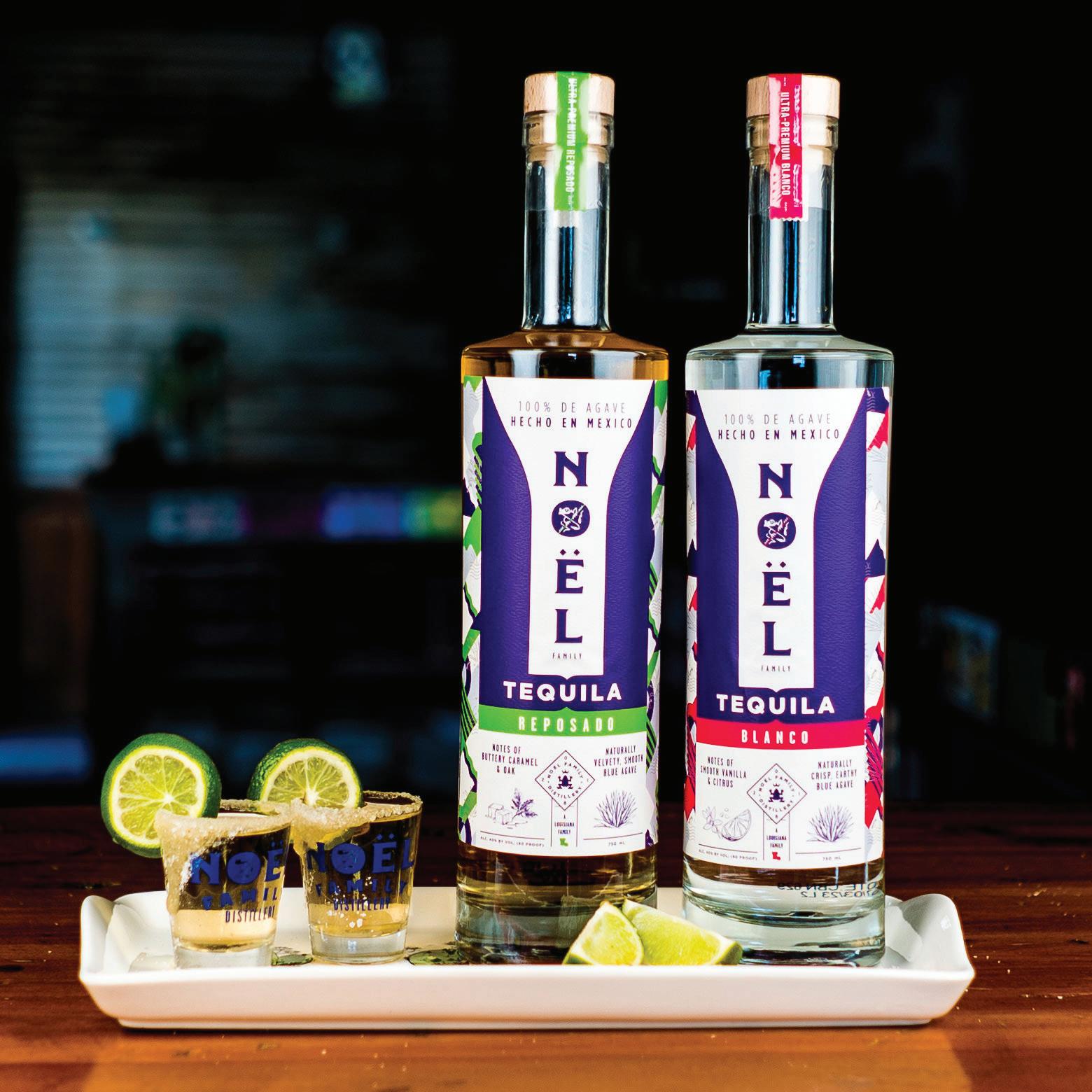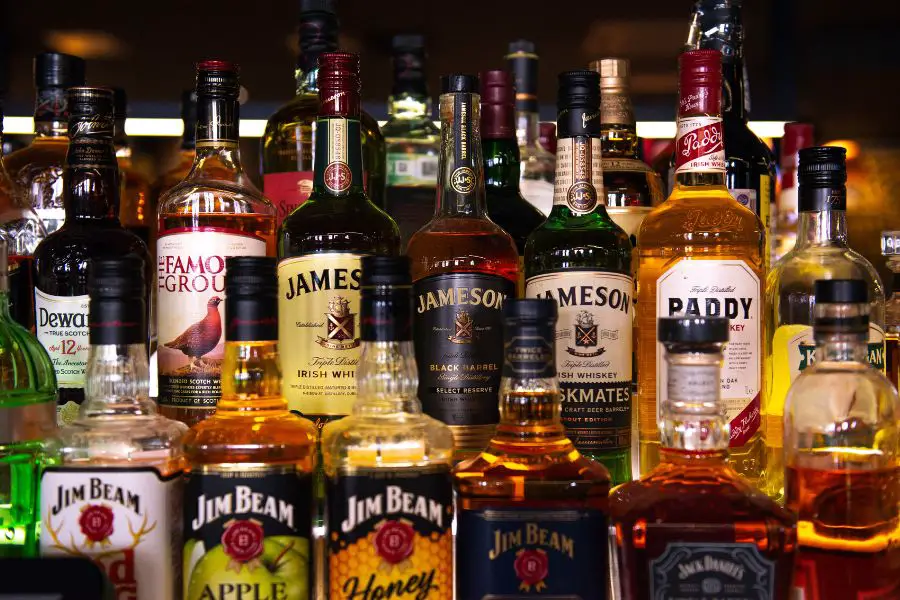Mexican liquor encompasses a wide range of spirits, including tequila, mezcal, and aguardiente. These alcoholic beverages are deeply rooted in Mexican culture and are enjoyed both locally and internationally.
Tequila, the most famous Mexican liquor, is made from the blue agave plant and has a distinctive flavor and aroma. Mezcal, on the other hand, is known for its smoky taste and is made from various types of agave plants.
Aguardiente, another popular choice, is a sugarcane-derived spirit that is often infused with different flavors. Each of these liquors offers a unique tasting experience and carries a piece of Mexican tradition with it. Whether enjoyed neat, in cocktails, or as part of traditional ceremonies, Mexican liquor holds a special place in the world of spirits.

History Of Mexican Liquor
Welcome to our exploration of the fascinating history of Mexican liquor. From ancient origins to modern-day production, the evolution of Mexican liquor is a rich tapestry of cultural traditions, colonial influences, and innovative craftsmanship. Let’s dive into the intoxicating journey of Mexican liquor and discover its intriguing origins.
The Ancient Origins
The roots of Mexican liquor can be traced back to pre-Columbian civilizations such as the Aztecs and Mayans. These ancient cultures produced fermented drinks from a variety of ingredients including agave, honey, and fruits. Pulque, a traditional Mexican alcoholic beverage made from the agave plant, was revered as a sacred elixir by these early societies.
Colonial Influence On Liquor Making
During the Spanish colonial period, European distillation techniques were introduced to Mexico, revolutionizing the production of liquor. The merging of indigenous ingredients with European distillation methods gave rise to iconic Mexican spirits such as tequila and mezcal. This fusion of traditions created a unique and diverse spectrum of Mexican liquors that continue to captivate connoisseurs worldwide.
Modern Mexican Liquor Industry
Today, Mexico boasts a thriving liquor industry characterized by a blend of time-honored techniques and contemporary innovation. The cultivation of agave plants, the hallmark of Mexican liquor production, remains an integral part of the country’s heritage. From small, artisanal distilleries to large-scale commercial enterprises, the modern Mexican liquor industry encompasses a wide array of spirits, each with its own distinctive flavors and regional influences.

Varieties Of Mexican Liquor
When it comes to Mexican liquor, the country offers a wide array of options to suit every taste. From the world-famous tequila and mezcal to the lesser-known aguardiente and traditional Mexican liqueurs, the country has a rich and diverse liquor culture.
Tequila
Tequila, the most well-known Mexican liquor, is made from the blue agave plant primarily in the state of Jalisco. It comes in various types, including Blanco (silver), Reposado (rested), Anejo (aged), and Extra Anejo (extra aged).
Mezcal
Mezcal, often called the smoky cousin of tequila, is made from the agave plant, mostly in Oaxaca. It has a distinct smoky flavor due to the cooking process using earthen pits. Mezcal is available in various types such as Joven (young), Reposado (rested), and Anejo (aged).
Rum
Mexican rum is often overshadowed by tequila and mezcal but still has its own unique charm. It is made from sugarcane, offering a sweet and versatile taste that is perfect for cocktails or enjoying on its own.
Aguardiente
Aguardiente, also known as “firewater,” is a strong alcoholic beverage made from sugarcane. It is popular in certain regions of Mexico and is often enjoyed as a traditional spirit during festive celebrations.
Traditional Mexican Liqueurs
Mexico also boasts various traditional liqueurs such as Damiana, a sweet and herbal liqueur, and Xtabentún, a Mayan liqueur made from honey. These traditional liqueurs offer unique flavors deeply rooted in Mexico’s rich history and culture.

Production Process Of Mexican Liquor
Discover the fascinating production process behind Mexican liquor, known for its rich history and distinctive flavors. From the harvesting and selecting of agave to the aging and maturation process, each step contributes to the unique character of this beloved spirit.
Harvesting And Selecting Agave
Agave, the key ingredient in Mexican liquor, is harvested by skilled farmers who carefully select mature plants to ensure optimal flavor. The leaves of the agave plant are trimmed, revealing the heart, or piña, which is then roasted to release its sweet juices.
Cooking And Fermentation
Roasted piñas are crushed, creating a pulp that is transferred to fermentation vats. Yeast is then added to ferment the sugars, resulting in the conversion of these sugars into alcohol. This crucial step influences the final taste and aroma of the liquor.
Distillation Techniques
The fermented liquid is distilled through traditional methods, such as pot or column stills. This process separates impurities and refines the alcohol content, producing a smooth and high-quality liquor. Distillation techniques play a vital role in distilleries to create a varying range of flavors and profiles.
Aging And Maturation
After distillation, the liquor is aged in barrels made from oak or other suitable woods. This period of maturation allows the flavors to develop and harmonize, while distinctive notes are imparted by the wood. Longer aging periods result in richer and more complex flavors, a testament to the craftsmanship and expertise of Mexican distillers.

Popular Mexican Liquor Cocktails
Looking to bring the flavors of Mexico to your next gathering or simply want to enjoy a refreshing cocktail? Popular Mexican liquor cocktails offer a delightful burst of flavors that are sure to awaken your taste buds. From the classic Margarita to the unique Mezcal Old Fashioned, these cocktails showcase the diverse range of Mexican liquors and their versatility in mixing.
Margarita
The Margarita is undoubtedly one of the most popular Mexican cocktails around the world. Its simple yet tantalizing combination of tequila, lime juice, and orange liqueur makes it a go-to option for any occasion. Whether you prefer it on the rocks, frozen, or flavored with fruits like strawberry or mango, the Margarita never fails to deliver a refreshing and tangy taste that lingers on the palate.
Paloma
The Paloma is another Mexican cocktail that deserves recognition. It offers a refreshing twist with its main ingredient being grapefruit soda instead of the traditional lime juice. Tequila, grapefruit soda, and a squeeze of lime create a well-balanced blend of sweet, tart, and citrus flavors that are perfect for quenching your thirst on a hot summer day. Add a salt rim for that extra zing!
Mojito With A Twist
The Mojito, a beloved Cuban cocktail, gets a Mexican twist with a dash of tequila. This variation brings together the classic combination of mint leaves, lime, sugar, and soda water but adds an extra layer of complexity with the tequila. The result is a refreshing and invigorating cocktail that seamlessly marries two cultures, making it a must-try for cocktail enthusiasts.
Mezcal Old Fashioned
For those who enjoy sipping on a sophisticated cocktail, the Mezcal Old Fashioned is a game-changer. Mezcal, a smoky and earthy Mexican spirit, replaces the traditional bourbon or rye whiskey in this timeless drink. Combine it with sugar, bitters, and a twist of orange peel, and you have yourself a unique and alluring cocktail that showcases the rich flavors of Mexico.
Mexican Mule
The Mexican Mule is a delightful twist on the classic Moscow Mule. It swaps vodka for tequila and adds a hint of spice with the addition of jalapeno slices or jalapeno-infused syrup. Served in a copper mug over ice with ginger beer and lime juice, this zesty cocktail is a true crowd-pleaser. Its vibrant flavors and refreshing kick make it an ideal choice for any gathering or celebration.
Impact And Global Demand Of Mexican Liquor
Mexican liquor continues to make a significant impact in the global market, with its distinct flavors and cultural heritage attracting a growing demand worldwide. From the popular tequila to the lesser-known mezcal and sotol, these spirits offer a unique taste experience, making them sought after by alcohol enthusiasts everywhere.
Rise Of Tequila And Mezcal In The International Market
Tequila and Mezcal, two iconic Mexican liquors, have been conquering the international market with their unique flavors and cultural heritage. Tequila, made from the blue agave plant, has gained immense popularity and is now globally recognized as a staple cocktail ingredient. Mezcal, on the other hand, is produced from various agave species and often enjoyed neat or in craft cocktails. The trajectory of both spirits in the international market can be attributed to their distinct taste profiles, versatility in mixology, and growing appreciation for high-quality, artisanal beverages. As consumers around the world become more adventurous in their drinking choices, the demand for Tequila and Mezcal continues to soar.
Cultural Influence On Mexican Liquor Consumption
Mexican liquor consumption goes beyond the realm of taste and transcends into a cultural experience that celebrates tradition and heritage. The vibrant and lively Mexican culture greatly influences the way liquors like Tequila and Mezcal are enjoyed. These spirits are deeply ingrained in Mexican traditions, making them an integral part of festivities, celebrations, and social gatherings. From the iconic Margaritas to the ceremonial sipping of Mezcal, Mexican liquor consumption is an invitation to immerse oneself in the rich cultural tapestry of the country. The cultural influence on Mexican liquor consumption has played a significant role in driving its global demand and establishing it as a symbol of Mexican identity.
Exploring New Markets And Trends
To cater to the ever-growing global demand for Mexican liquor, producers are constantly exploring new markets and trends. Traditional markets like the United States and Canada continue to be key players in the importation and consumption of Tequila and Mezcal. However, emerging markets in Europe, Asia, and beyond present exciting opportunities for expansion. These markets not only provide a platform for introducing Mexican spirits to new audiences but also offer the chance to experiment with innovative flavors and production techniques. As the demand for craft spirits and artisanal beverages continues to rise, the Mexican liquor industry is poised to captivate even more hearts and palates around the world. Overall, the impact and global demand for Mexican liquor, particularly Tequila and Mezcal, have been on the rise. With their distinctive flavors, cultural significance, and exploration of new markets, these spirits have successfully carved a niche for themselves in the international beverage industry. As consumers continue to seek unique and authentic drinking experiences, the allure of Mexican liquors only continues to grow.

Frequently Asked Questions Of Mexican Liquor
What Are The Most Popular Mexican Liquors?
Some of the most popular Mexican liquors include Tequila, Mezcal, and Aguardiente. Tequila is made from blue agave plants, Mezcal is made from different types of agave plants, and Aguardiente is a traditional Mexican spirit made from sugar cane.
How Is Tequila Different From Other Mexican Liquors?
Tequila is made specifically from the blue agave plant, while other Mexican liquors like Mezcal can be made from various types of agave plants. Tequila also has a smoother taste compared to Mezcal, which has a stronger smoky flavor.
Can I Substitute Tequila With Mezcal In Cocktails?
Yes, you can substitute Tequila with Mezcal in cocktails. However, keep in mind that Mezcal has a stronger smoky flavor compared to Tequila, so it might alter the taste of the cocktail. Experiment with different ratios to find the balance that suits your preference.
Conclusion
Mexican liquor offers a unique and diverse range of spirits that are a delight for any cocktail enthusiast. From the smoky punch of mezcal to the smooth and vibrant flavors of tequila, these traditional Mexican beverages are sure to elevate your drinking experience.
Whether you’re sipping margaritas or exploring new cocktail recipes, Mexican liquor provides a rich cultural experience that cannot be ignored. So, raise a glass and toast to the traditional flavors and heritage that Mexican liquor brings to the world of spirits.
Salud!
